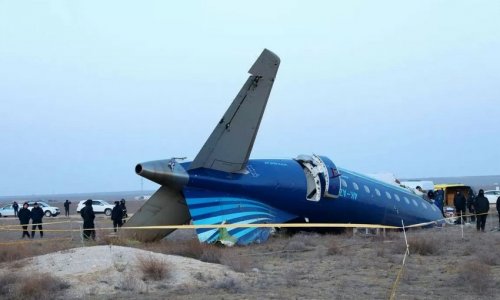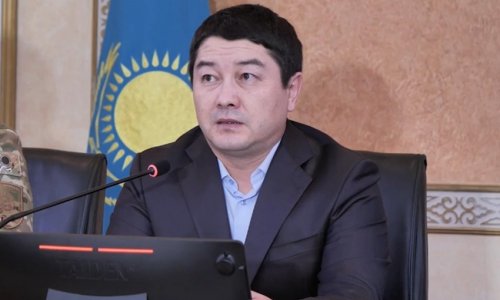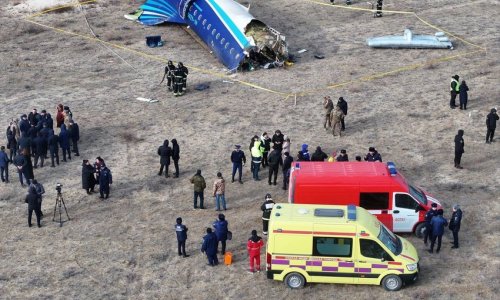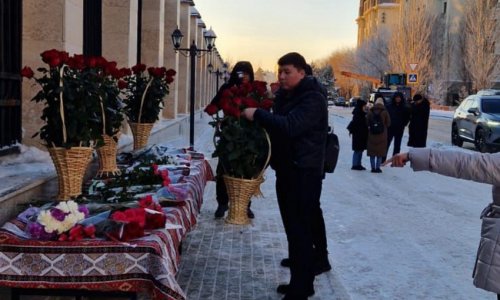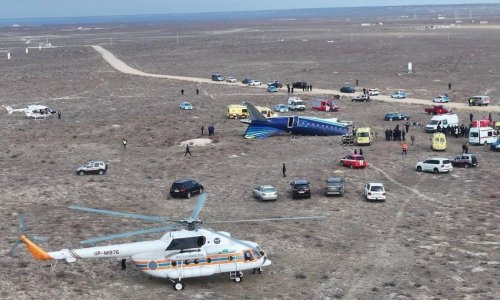A column of 262 lorries, which Russian officials say is packed with 2,000 tons of aid, left a military base near Moscow on Tuesday morning and is due to arrive at the Ukrainian border near the city of Kharkiv early on Wednesday.But Ukrainian officials said the convoy would only be allowed to cross if it falls under the supervision of the International Committee of the Red Cross (ICRC).How Russia might react if Ukraine refuses to admit the aid is unclear. Western leaders have warned that the Kremlin could use such a scenario as a pretext for direct military intervention in Ukraine."This convoy is not a certified convoy – it is not certified by the International Committee of the Red Cross," said Andriy Lysenko, a spokesman for Ukraine's National Security and Defence Council. "No military structures have the right to escort humanitarian aid convoys, especially into another state."But the Russian foreign ministry insisted that the convoy would comply with Ukraine's conditions, including on the route and inspection of the cargo. The trucks will enter Ukraine "via a border crossing agreed by Russia and Ukraine" said a statement from the ministry, adding that the column's onward journey would be under the "supervision" of the ICRC."Russia expects maximum cooperation by the Ukrainian side in ensuring the security of the delivery of humanitarian aid to the residents of Donetsk and Lugansk regions," added the ministry.However, the ICRC said only that they were aware of some form of agreement between Ukraine and Russia, but they were still seeking "clarification".Diplomatic sources suggested on Monday that a deal had been reached, whereby the aid would be sent without a Russian military escort and clearly "badged" as international, not Russian.Last week, Ukraine blocked an attempt by a similar convoy to enter its territory, fearing a military intervention under the guise of a humanitarian mission.Asked if the supplies on the convoy were all humanitarian supplies, a US state department spokesman confessed "we don't know", adding that the US continued to have "concerns" over the possible motives of the Russia aid mission."Nothing can be done under the guise of humanitarian assistance here that is anything other than what they [the Russian government] claim it is," she said.Concern about a possible Russian invasion of its neighbour has grown since Ukraine's armed forces inflicted a series of defeats on pro-Kremlin rebels. The insurgents have now been pushed back to their strongholds in the eastern cities of Donetsk and Luhansk, both of which are close to being encircled by Ukrainian forces.Rather than watch his allies go down to defeat, Western governments fear that President Vladimir Putin may choose to intervene in Ukraine. Nato believes that Russia has massed at least 20,000 "battle ready troops" on the border.Fearing this scenario, Western governments have privately urged President Petro Poroshenko of Ukraine to seek a political solution to the insurgency, rather than outright military victory. One Western official said there were "increasing numbers of people around Poroshenko who realise there is no military solution to this situation in the East". But the president's own position was unclear.If the convoy enters Ukraine on Wednesday, its onward route is uncertain, but it seems likely that it would head south, passing through areas that have recently been captured by Ukrainian forces, including the former rebel stronghold in the town of Slavyansk, before reaching the area of hostilities in Donetsk and Luhansk regions.In the village of Shchastya, ten miles north of Luhansk city, refugees said that people were being forced to bury their dead in yards and gardens because it was too dangerous to travel.In this area, people cower for days in cellars as mortar and artillery fire rains down. Some area have been without running water or electricity for several weeks. The telephone system is down, mobile phones almost never work, shops are looted or shuttered, banks are closed and fuel for cars and generators is running out."We were hiding in our neighbour's basement when we heard a shell fall right above us," said Lyuda, 52, from Krasny Yar, a village near Luhansk. "We rushed out and our house was on fire – only the walls remained. We lost everything. We had to run away, dirty and unwashed, just to save the children."(telegraph.co.uk)Bakudaily.Az
Russia and Ukraine set for tense stand off over 'aid' convoy
World
17:15 | 13.08.2014
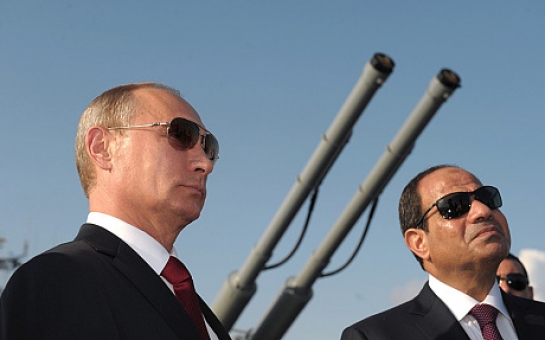
Russia and Ukraine set for tense stand off over 'aid' convoy
Russia and Ukraine appeared to be heading for a tense stand-off on Tuesday night after Kiev threatened to close the border to an aid convoy that it fears could be a "Trojan Horse" for Russian intervention in the civil war.
Follow us !


